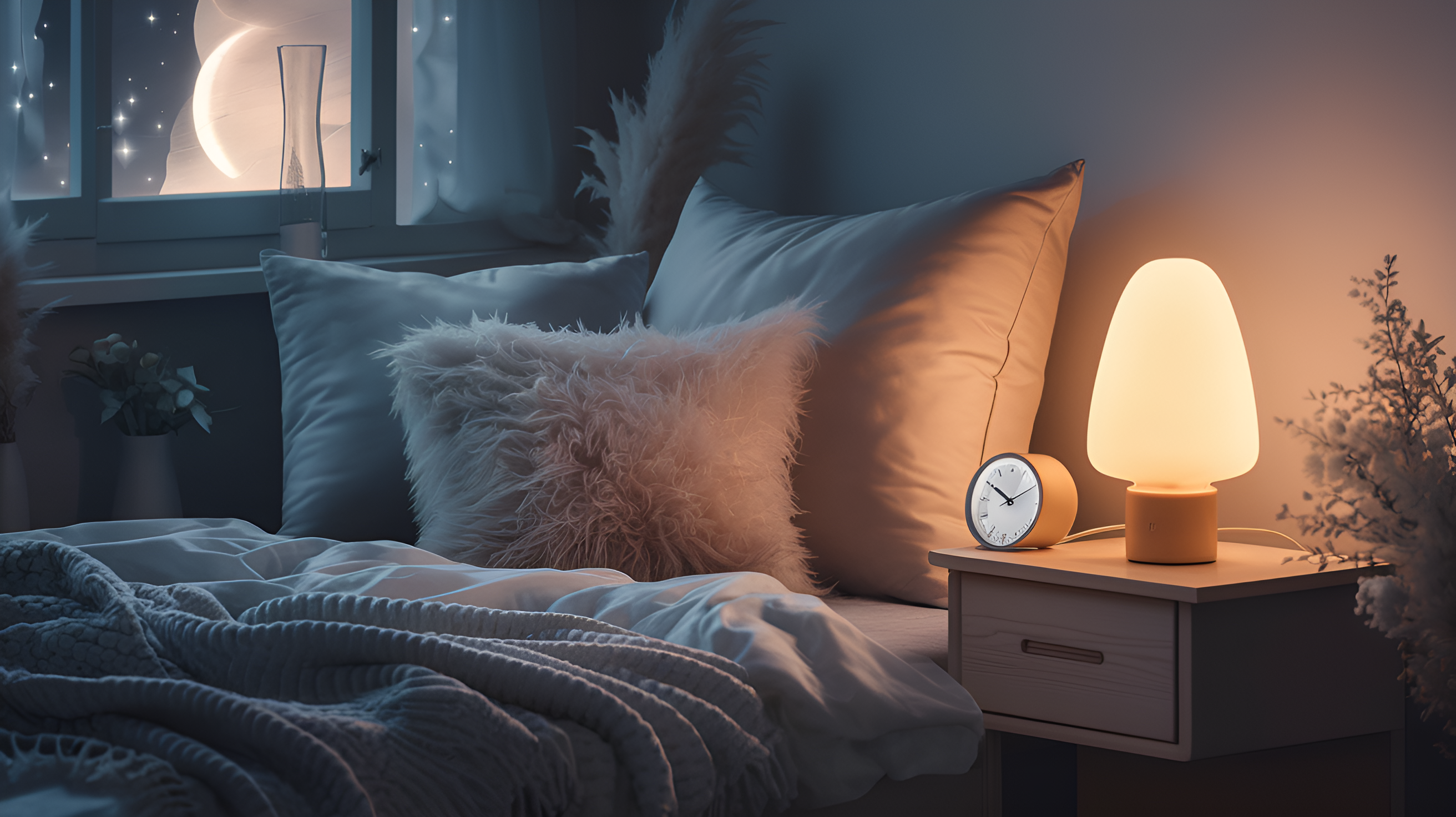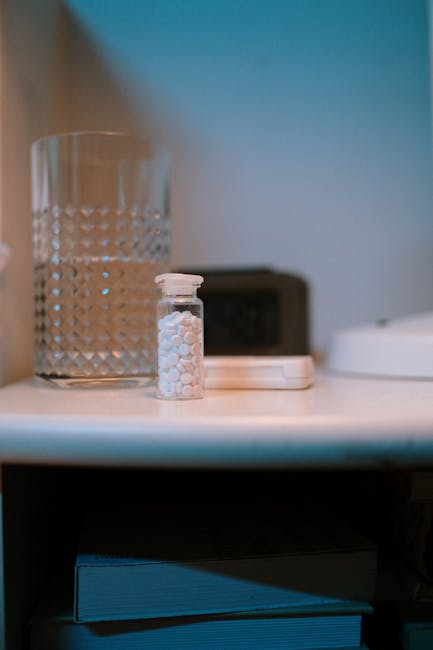Sleep is a fundamental aspect of our overall health and well-being, yet many of us struggle to get the quality rest we need. This comprehensive guide explores various strategies and techniques to enhance your sleep quality, delving into the science of sleep cycles, the importance of circadian rhythms, and the role of REM sleep in recovery. By understanding the intricacies of sleep, you’ll be equipped with practical tips to create an optimal sleep environment, make lifestyle changes, and incorporate natural remedies and sleep-tracking tools for better rest.
Key Takeaways
- Discover the science behind sleep cycles and circadian rhythms, and how they impact your overall rest.
- Learn essential steps to improve your sleep quality, from creating the perfect sleep environment to developing a consistent bedtime routine.
- Explore the impact of diet, exercise, and natural remedies on your sleep, and how to incorporate them into your lifestyle.
- Understand the role of technology in sleep tracking and how it can help you optimize your rest.
- Develop a comprehensive understanding of sleep hygiene and the strategies to achieve better quality sleep.

Understanding the Science of Sleep Cycles and Rest
Unlocking the secrets of a good night’s sleep requires a deeper understanding of the intricate science behind our sleep cycles. From the four distinct stages of sleep to the role of circadian rhythms, exploring the complexities of rest can help us optimize our slumber and revive our bodies and minds.
The Four Sleep Stages Explained
The sleep cycle consists of four distinct stages, each playing a crucial role in our overall well-being. Beginning with light sleep, we progress through deeper stages of slumber, including REM (rapid eye movement) sleep, where our brain activity intensifies, and our dreams come to life. Understanding these stages can empower us to create sleep habits that maximize the benefits of each phase.
How Circadian Rhythms Affect Your Sleep
Our internal circadian rhythms, driven by the body’s natural 24-hour clock, significantly influence our sleep-wake cycles. These rhythms are regulated by various environmental cues, such as light and temperature, and can be disrupted by factors like jet lag or irregular work schedules. By aligning our activities with our circadian cycles, we can enhance the quality and duration of our sleep.
The Role of REM Sleep in Recovery
REM sleep is particularly important for cognitive function, memory consolidation, and emotional processing. During this stage, the brain is highly active, and the body experiences temporary paralysis, allowing for deeper rest and rejuvenation. Ensuring adequate REM sleep is crucial for maintaining optimal physical and mental health.
| Sleep Stage | Duration | Characteristics |
|---|---|---|
| Light Sleep | 50-60 minutes | Relaxation, easy to awaken |
| Deep Sleep | 20-40 minutes | Muscle relaxation, tissue repair |
| REM Sleep | 10-20 minutes | Increased brain activity, vivid dreaming |
By understanding the intricacies of sleep cycles, circadian rhythms, and the importance of REM sleep, we can take proactive steps to improve our overall sleep quality and unlock the restorative benefits of a good night’s rest.
Sleep Quality Improvement: Essential Steps for Better Rest
Achieving a good night’s sleep is crucial for overall health and well-being. To improve your sleep quality, consider these essential steps:
Establish a Consistent Sleep Schedule
Maintaining a regular sleep-wake cycle is key to regulating your body’s internal clock. Aim to go to bed and wake up at the same time every day, even on weekends. This helps reinforce your circadian rhythms and promotes better sleep quality improvement.
Create a Relaxing Bedtime Routine
- Engage in calming activities before bed, such as reading a book, taking a warm bath, or practicing light stretching.
- Avoid stimulating activities, like using electronic devices or watching TV, in the hours leading up to bedtime.
- Ensure your bedroom is dark, cool, and quiet to optimize your sleep hygiene.
Address Sleep Disruptions
If you struggle with insomnia treatment, consider the following strategies:
- Identify and manage any underlying medical conditions or medications that may be affecting your sleep.
- Limit caffeine, nicotine, and alcohol consumption, as these can interfere with sleep quality.
- Engage in regular physical activity during the day to promote better sleep at night.
| Common Sleep Disorders | Symptoms | Treatment Options |
|---|---|---|
| Insomnia | Difficulty falling or staying asleep | Cognitive-behavioral therapy, sleep hygiene techniques, and/or prescription medications |
| Sleep Apnea | Repeated breathing interruptions during sleep | Continuous positive airway pressure (CPAP) therapy, oral appliances, or surgery |
| Restless Leg Syndrome (RLS) | Uncomfortable sensations in the legs that worsen at night | Medications, lifestyle changes, and/or therapy |
By implementing these strategies, you can take meaningful steps towards improving your sleep quality improvement and enjoying the restorative benefits of a good night’s sleep.
Creating the Perfect Sleep Environment
Achieving quality sleep is not just about the number of hours you spend in bed. The environment you sleep in plays a crucial role in determining the depth and duration of your rest. By optimizing your bedroom for temperature, humidity, noise control, and lighting, you can create a sleep-promoting oasis that helps you wake up feeling refreshed and rejuvenated.
Temperature and Humidity Control
The ideal sleep environment is one that is cool and comfortable. Experts recommend maintaining a bedroom temperature between 65°F and 70°F (18°C and 21°C) for optimal sleep. Additionally, keeping humidity levels between 30% and 50% can help prevent disruptions caused by dry air or excessive moisture.
Noise Management Solutions
Unwanted sounds can easily disrupt your sleep cycle. To minimize noise interference, consider using earplugs, a white noise machine, or soundproofing materials in your bedroom. Identifying and eliminating sources of persistent noise, such as street traffic or household appliances, can also contribute to a more peaceful sleep environment.
Optimal Bedroom Lighting
The presence of light, particularly blue light emitted from electronic devices, can significantly impact your body’s natural sleep-wake cycle. To create an optimal sleep environment, minimize blue light exposure by turning off or dimming electronic screens at least an hour before bedtime. Consider installing dimmer switches or using warm-toned lamps to provide gentle, soothing lighting in your bedroom.
By tailoring your sleep environment to meet these essential factors, you can enhance your overall sleep quality and wake up feeling more rested and rejuvenated. Remember, a comfortable, quiet, and dimly lit bedroom is the key to unlocking better sleep and improved health.
The Impact of Diet and Exercise on Sleep
Achieving quality sleep is not solely dependent on your bedtime routine or sleep environment. Your diet and physical activity levels play a crucial role in determining the quality and duration of your sleep. By understanding the connection between nutrition, exercise, and sleep, you can make informed choices to improve your overall sleep quality and manage stress effectively.
Nutrition and Sleep Quality
Certain foods and nutrients can have a significant impact on your sleep patterns. For instance, tryptophan-rich foods, such as turkey, dairy products, and nuts, can help boost serotonin and melatonin production, promoting better sleep. Additionally, complex carbohydrates like whole grains can enhance sleep by stabilizing blood sugar levels and reducing the risk of mid-sleep disturbances.
The Timing of Exercise
The timing of your physical activity can also influence your sleep quality. Exercising in the morning or early afternoon can help regulate your circadian rhythms and improve sleep, while late-night workouts may have the opposite effect. Engaging in moderate exercise, such as a brisk walk or yoga, a few hours before bedtime can also help you relax and transition into a restful sleep.
Stress Management and Sleep
- Stress and anxiety can significantly disrupt sleep patterns, leading to insomnia and other sleep-related issues.
- Incorporating stress management techniques, such as meditation, deep breathing, or journaling, can help alleviate stress and improve your sleep quality.
- Regular exercise has also been shown to be an effective stress-reduction strategy, further enhancing your sleep quality.
By integrating a balanced diet, strategic exercise timing, and effective stress management techniques, you can unlock the full potential of sleep quality improvement and stress management for a healthier, more well-rested life.
Developing a Consistent Bedtime Routine
Creating a consistent bedtime routine is crucial for achieving better sleep quality. By establishing a predictable sequence of activities, you can signal to your body that it’s time to wind down and prepare for a restful night’s sleep. In this section, we’ll explore strategies to optimize your evening hours and set the stage for a more rejuvenating slumber.
Pre-sleep Relaxation Techniques
To facilitate a smooth transition into sleep, incorporate relaxation practices into your bedtime routine. Engaging in light yoga, deep breathing exercises, or meditation can help alleviate stress and promote a state of calmness. These activities can effectively manage bedtime routine and stress management, paving the way for a more restful night.
Timing Your Evening Activities
The timing of your evening activities can significantly impact your ability to fall asleep and stay asleep. Aim to wind down your day by gradually reducing stimulating tasks and avoiding blue light exposure from digital devices at least an hour before your desired bedtime. This will help your body recognize the cues for sleep and maintain a consistent circadian rhythm.
Digital Device Management
The ubiquity of digital devices in our lives can pose a challenge to bedtime routine and sleep quality. The blue light emitted from screens can disrupt your body’s natural melatonin production, leading to delayed sleep onset and reduced sleep quality. Implement strategies to minimize blue light exposure before bed, such as using screen filters, setting devices to night mode, or avoiding screens altogether in the hours leading up to sleep.
| Technique | Benefits |
|---|---|
| Yoga and Meditation | Reduces stress and promotes relaxation, leading to better bedtime routine and improved sleep quality. |
| Reducing Blue Light Exposure | Supports natural melatonin production, facilitating a more restful and restorative sleep. |
| Consistent Timing of Evening Activities | Strengthens your body’s circadian rhythms, ensuring a more consistent and high-quality sleep cycle. |
By adopting these strategies and developing a consistent bedtime routine, you can take a significant step towards improving your sleep quality and overall well-being.
Natural Remedies and Sleep Supplements
Struggling to get a good night’s sleep? You’re not alone. Millions of people worldwide face insomnia and other sleep-related issues. Fortunately, there are natural remedies and supplements that can help improve sleep quality and duration.
One of the most well-known and widely studied sleep supplements is melatonin. Melatonin is a hormone produced by the pineal gland in the brain, and it plays a crucial role in regulating the body’s sleep-wake cycle. Numerous studies have shown that melatonin supplements can be effective in treating insomnia and improving sleep quality, especially in people with disrupted circadian rhythms.
In addition to melatonin, there are several other natural remedies that may help with sleep. Valerian root, for instance, has been used for centuries to promote relaxation and improve sleep. Chamomile, lavender, and passionflower are also believed to have calming properties that can aid in better sleep.
- Melatonin supplements
- Valerian root
- Chamomile
- Lavender
- Passionflower
It’s important to note that while these natural remedies and supplements can be effective, they may not work for everyone. It’s always best to consult with a healthcare professional before starting any new supplement regimen, especially if you have underlying medical conditions or are taking prescription medications.
“Natural remedies and supplements can be a safe and effective way to improve sleep, but they should be used with caution and under the guidance of a healthcare provider.”
By incorporating natural remedies and supplements into your sleep routine, you may be able to improve your overall sleep quality and wake up feeling refreshed and rejuvenated.
Technology and Sleep Tracking Tools
In the digital age, technology has revolutionized the way we approach sleep quality improvement. From advanced sleep tracking apps to innovative wearable devices, a wealth of tools are now available to help you gain deeper insights into your sleep patterns and take proactive steps towards better rest.
Sleep tracking technologies utilize a range of sensors to monitor various aspects of your sleep, including movement, heart rate, breathing patterns, and even brain activity. By analyzing this data, these tools can provide detailed reports on your sleep stages, sleep duration, and sleep quality, offering valuable insights to help you optimize your sleep habits.
Popular sleep tracking apps, such as Sleep Cycle and Fitbit, leverage your smartphone’s built-in accelerometer and microphone to track your sleep. These apps can even detect snoring and restless periods, giving you a comprehensive understanding of your sleep quality. Wearable devices, like the Oura Ring and Withings Sleep Analyzer, take sleep tracking to the next level, using advanced sensors to provide even more detailed sleep data.
- Sleep Cycle: Tracks your sleep stages, snoring, and restless periods using your smartphone’s sensors.
- Fitbit: Offers a range of wearable devices that monitor your sleep quality, heart rate, and other vital signs.
- Oura Ring: A smart ring that tracks your sleep, activity, and overall well-being, providing personalized insights.
- Withings Sleep Analyzer: A non-wearable device that slides under your mattress to track your sleep without disrupting your rest.
By incorporating these sleep tracking tools into your daily routine, you can gain valuable insights into your sleep patterns and take proactive steps to improve your sleep quality improvement. Whether you prefer a smartphone app or a dedicated wearable device, the wealth of technology available can be a powerful ally in your journey towards better rest and a healthier lifestyle.
| Sleep Tracking App/Device | Key Features | Compatibility | Price Range |
|---|---|---|---|
| Sleep Cycle | Sleep stage tracking, snoring detection, smart alarm | iOS, Android | Free with in-app purchases |
| Fitbit | Sleep stage tracking, heart rate monitoring, personalized insights | iOS, Android, Windows | $59.95 – $299.95 |
| Oura Ring | Comprehensive sleep tracking, activity monitoring, HRV analysis | iOS, Android | $299 – $399 |
| Withings Sleep Analyzer | Mattress-based sleep tracking, sleep apnea detection, smart home integration | iOS, Android | $99.95 |
Conclusion
In this comprehensive guide, we’ve explored the intricate science of sleep cycles, the importance of sleep hygiene, and proven strategies for improving your overall sleep quality. From understanding circadian rhythms to creating the perfect sleep environment, you now have the knowledge and tools to embark on your journey towards better rest and rejuvenation.
Remember, quality sleep is not just a luxury, but a fundamental necessity for your physical and mental well-being. By implementing the techniques discussed in this article, such as maintaining a consistent bedtime routine, incorporating natural remedies, and leveraging sleep-tracking technology, you can take control of your sleep patterns and maximize the restorative benefits of a good night’s rest.
If you continue to struggle with persistent sleep issues, it’s important to seek guidance from a healthcare professional. They can provide personalized recommendations and address any underlying health conditions that may be contributing to your sleep challenges. By addressing the root causes and embracing a holistic approach to sleep quality improvement, you can unlock the path to a healthier, more vibrant life.
FAQ
What are the four stages of sleep?
The four stages of sleep are light sleep, deep sleep, and REM (rapid eye movement) sleep. These stages are essential for cognitive function, physical recovery, and overall health.
How do circadian rhythms affect sleep quality?
Circadian rhythms are the 24-hour cycles that regulate our sleep-wake patterns. They are influenced by factors like light exposure and can significantly impact sleep quality. Maintaining a consistent sleep schedule helps keep your circadian rhythms in sync.
What are some effective strategies for improving sleep hygiene?
Establishing a consistent sleep schedule, creating a relaxing bedtime routine, and minimizing exposure to blue light from digital devices can all help improve sleep hygiene. Ensuring your bedroom is cool, dark, and quiet can also enhance sleep quality.
How can exercise and diet impact sleep?
Regular physical activity can promote better sleep, but it’s important to time your exercise appropriately. Certain foods, such as those rich in tryptophan or melatonin, can also support healthy sleep patterns. Stress management techniques can further improve sleep quality.
What are the benefits of using sleep tracking technology?
Sleep tracking devices and apps can provide valuable insights into your sleep patterns, helping you identify areas for improvement. By monitoring factors like sleep duration, sleep stages, and sleep quality, you can make targeted adjustments to your sleep routine and environment.
Are there any natural remedies or supplements that can help with sleep?
Melatonin supplements and some herbal remedies, such as chamomile and valerian root, have been found to assist with sleep. However, it’s important to consult with a healthcare professional before incorporating any new supplements into your routine, as they may interact with medications or have unintended side effects.
When should I seek professional help for sleep issues?
If you consistently struggle with insomnia, excessive daytime sleepiness, or other persistent sleep problems, it’s recommended to seek the guidance of a healthcare professional, such as a sleep specialist or primary care physician. They can help diagnose and treat any underlying sleep disorders or provide personalized recommendations for improving your sleep quality.



